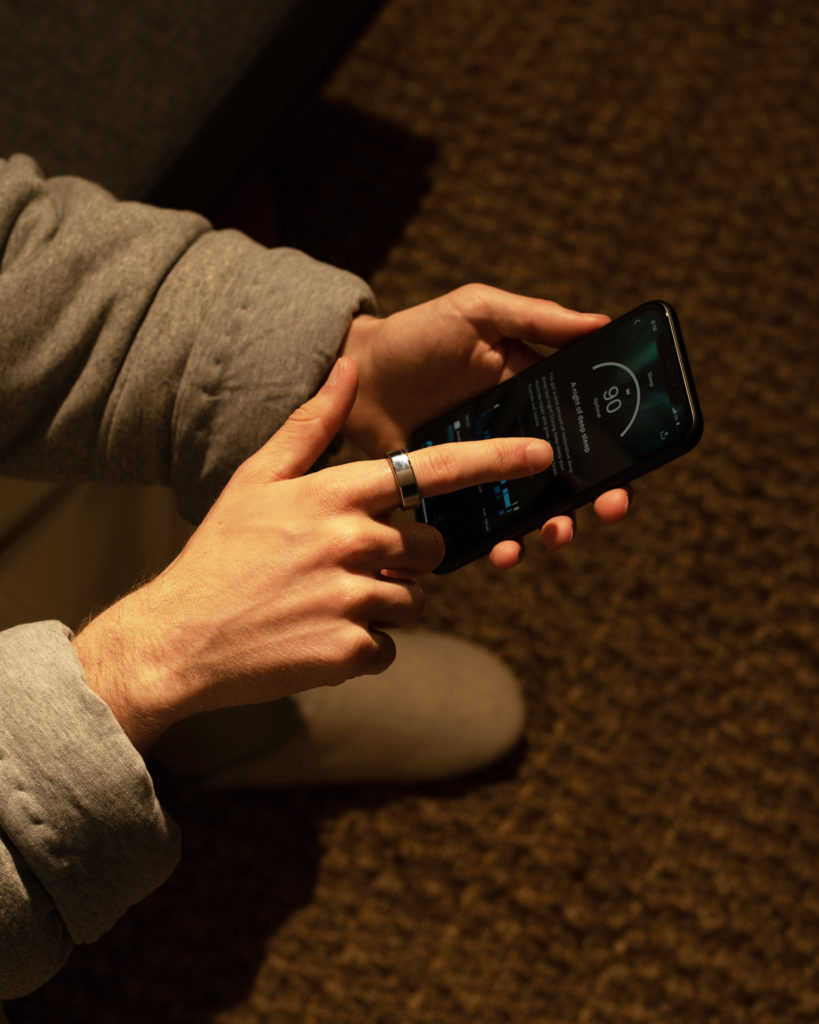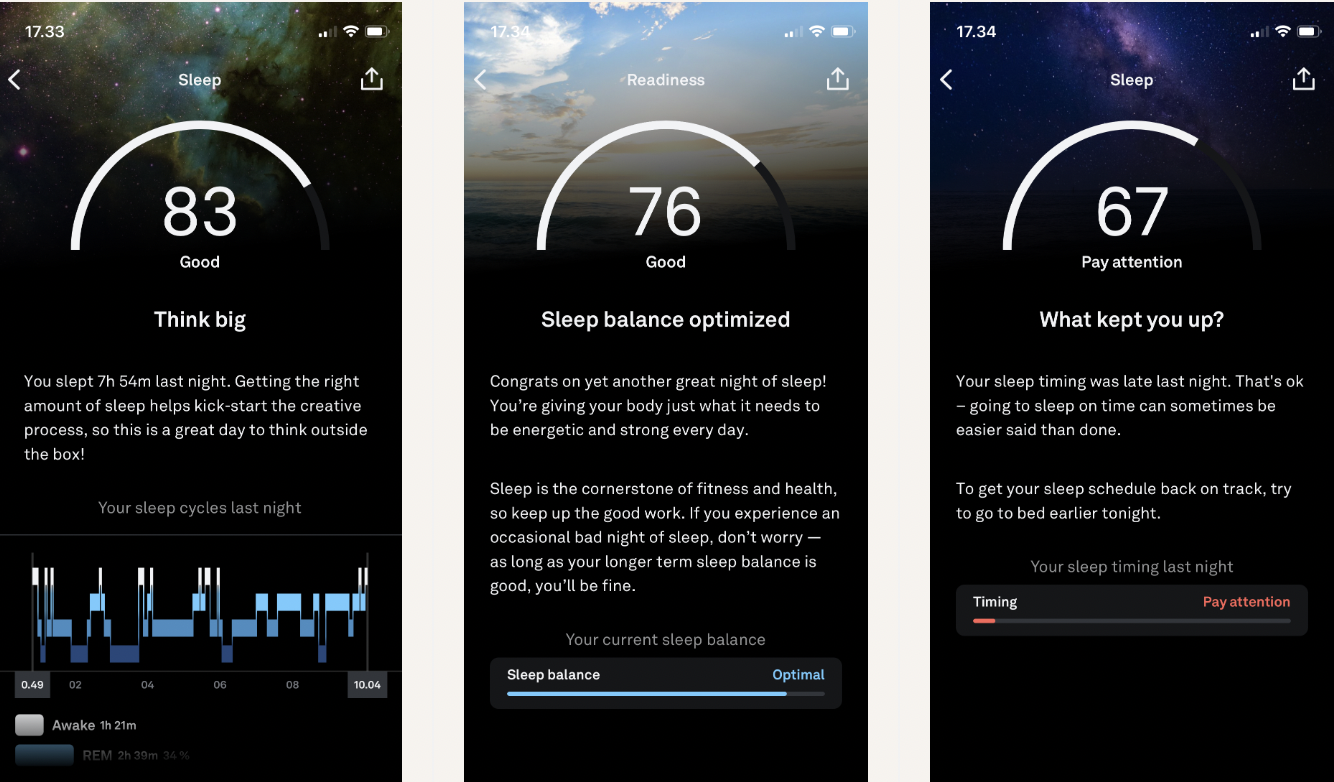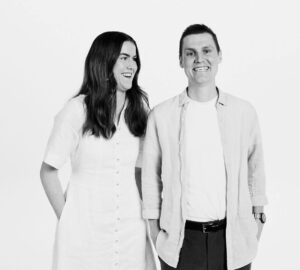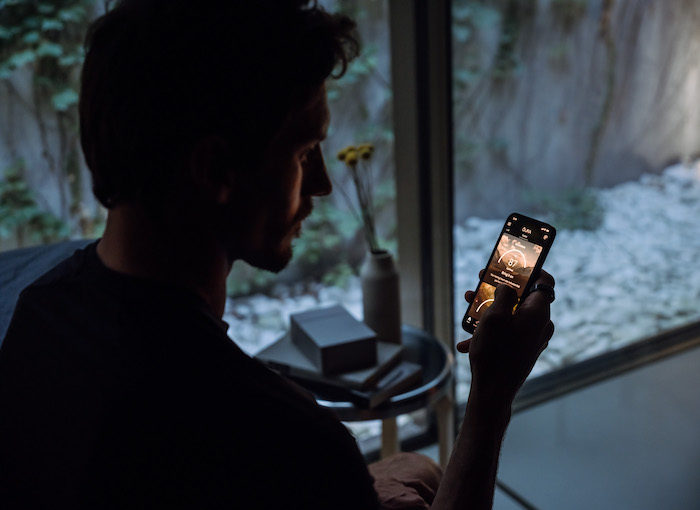- Orthosomnia is a term coined in a 2017 study that describes a preoccupation with pursuing “perfect” sleep.
- While orthosomnia may not be highly prevalent condition, some people who tend toward perfectionism may find that they obsess over their sleep stats.
- Oura’s compassionate approach to sleep is designed to help people focus on a balanced, positive approach to sleep without stressing over an imperfect night of sleep.
It’s inevitable that there will be some when you sleep poorly — whether due to restless bedmates, early-morning obligations, or a late-night binge-watching session. If you use a wearable like Oura to track your sleep, you poor sleep can then show up in your wearable’s biometric data, which isn’t a great way to start the day.
While some people might be unbothered (but aim for an earlier bedtime or a nap!), other people may find their moods and even mental health are adversely affected by a low sleep score.
If a poor night’s sleep has ever ruined your day, you’re not alone. Recent research have coined the term orthosomnia that describes a preoccupation with “perfect” sleep.
However, good sleep is essential to good health. So how can you use a health wearable like Oura to support healthy habits — without becoming obsessed? Read on to learn more about orthosomnia, plus strategies to find a more balanced approach.
RELATED: How Does Oura Track Your Sleep?
An Abundance of Data
In the past few decades, an abundance of research has shown that good sleep is essential to health. Thanks to advancements in consumer technology, people are now able to track their sleep down to the minute, look at detailed pictures of sleep stages, and analyze important metrics such as heart rate and respiratory rate — data that was previously unavailable to the average person.
Perfection Isn’t the Goal
When we have so much data at our fingertips, it can be easy to get caught up in what the numbers tell us. But it’s important to remember that perfection is not the end goal when it comes to sleep, says Sofia Strömmer, PhD, a behavioral scientist at Oura. After all, “sleep isn’t a sport where we can improve our performance if we just work harder at it,” she notes. “When we are working hard to look after our wellbeing, it is easy to forget that trying to perfect our sleep can actually be counterproductive.”
Oura’s Compassionate Approach
At Oura, we’ve been deliberate about designing a supportive experience where the data becomes your partner in your journey toward better sleep (and health). For instance, you won’t find a scolding message after a night when you’ve gotten a small amount of deep sleep. Instead, the Oura App will emphasize the importance of finding routines and behaviors that maximize the most restorative stages of sleep the next night.
RELATED: Learn About Oura’s Compassionate Approach to Sleep
What Is Orthosomnia?
A 2017 study by lead researcher Kelly Glazer Baron, PhD, coined the term orthosomnia combining “ortho,” meaning straight or correct, and “somnia,” meaning sleep. The researchers wrote that they chose this name because of its similarity to a condition called orthorexia, a preoccupation with healthy eating.
Since orthosomnia is a new term for an emerging trend, it’s not included in the Diagnostic and Statistical Manual of Mental Disorders (the gold standard for mental health professionals diagnosing mental health disorders). Instead, “think of it more as a habit that can contribute to insomnia and anxiety about sleep,” says Annie Miller, LCSW, a therapist with a specialty in behavioral sleep medicine.

What Are Signs of Orthosomnia?
There is no definitive list of symptoms, though Miller notes that red flags include obsessively checking sleep tracker data and excessive focus on what the data shows. Some people may also “diagnose” themselves with insomnia or poor sleep, even when their sleep may actually be average or even good. In addition, the patients in Baron’s study complained about daytime irritability, impaired cognitive function, and anxiety, which they attributed to poor sleep.
Remember, Sleep Is Subjective
Just like diet or exercise, there’s no one-size-fits-all formula for sleep. “There’s some variability in individual sleep patterns and styles,” says Jenna Gress Smith, PhD, clinical psychologist with expertise in health psychology and behavioral sleep medicine. While most adults need 7 to 9 hours of total sleep to perform well and stay healthy, the exact amount needed varies greatly from person to person — and even day to day.
Plus, as any sleep expert will tell you, getting worked up about not sleeping or trying to force yourself to sleep is never helpful. In fact, this kind of behavior simply activates your stress systems — and your body should ideally be in a particular non-activated state for sleep to happen, Gress Smith notes.
RELATED: How Stress Affects Your Sleep
Oura’s Approach to Sleep Tracking
At Oura, our approach to sleep tracking blends our state-of-the-art science and technology, with helpful, human-first insights and information behind the data. Our latest sleep staging algorithm, the result of more than two years of extensive research and development, is the new gold standard of wearable sleep tracking.
How? By leveraging every signal from the Oura Ring (movement, temperature, heart rate, and HRV), our algorithm achieves 79% agreement with gold-standard polysomnography (PSG) for 4-stage sleep classification. In other words, you won’t be seeing overly negative nights of sleep when it really was decent.
What’s more, our insight messages use a compassionate, human-first approach to show Oura members what their data means. “Insight messages highlight the aspects of your sleep that can affect your day the most,” says Johanna Still, senior product manager at Oura. “What we want our members to remember, especially after a so-so night’s sleep, are: 1) It’s okay, you’ll pull through, and 2) Prioritizing sleep and rest is not a synonym for sloth!”
“One key message we’ll focus on more in the future is the importance of self-compassion,” Still adds. “No one is perfect, and it’s completely fine not to excel in sleep every night — we want ‘good’ to become your new ‘optimal!’”

Oura’s insight messages take a compassionate approach to sleep performance, reminding members that they’ll pull through and providing gentle tips to help them get back on track.
3 Tips to Use Your Sleep Data Wisely
While Oura’s algorithm is state-of-the-art, it’s important to remember that your sleep quality is determined by many different factors in your life, Strömmer says. So use your data as helpful insights — not as doctrine.
1. Use your sleep data to experiment.
Sleep data should be viewed as a glimpse into your sleep patterns, our experts say. With a wearable like Oura you can start to understand how certain behaviors, habits, and routines can improve (or decrease) your sleep quality. For example, you can determine whether exposure to morning light helps you fall asleep faster, or if meditation, reading, journaling or other relaxation techniques before bed help you sleep better.
Oura members can use Tags, to understand how these factors affect their sleep quality. With Oura, you can also visualize these connections as Trends over time. Making this connection between your habits and your data and well-being is the way to find the best set of tools and sleep schedule for you, Gress Smith notes.
2. Find alternatives to lying awake at night.
Lying in bed awake and trying to fall asleep can build anxiety, giving your brain a wide-open space to worry, Miller says. Can’t sleep? Get out of bed and engage in a quiet activity, like reading or watching TV, she suggests. If you’re using electronic screens, make sure to enable “night mode,” which reduces blue light, which can interfere with your sleep and cause eye strain when using your device in the dark.
For an audio-only experience, Oura members can access sleep-inducing bedtime meditations and sleep stories in the Explore content in the Oura App.
READ MORE: How Blue Light Impacts Your Sleep
3. Focus on optimizing your days — instead of your nights.
“Good quality sleep trickles down from a life that is balanced and compassionate,” says Strömmer. “Our days are often spent trying to fit in work, family, hobbies, exercise, household management, and then we stay up late to watch an episode of your favorite series because that’s the only time you have —no wonder sleep can be elusive!”
For one week, consider whether there is anything you can do to make your days less stressful, she suggests: “You may find the effects of this improve your nights, too.”
If you’re an Oura member, you can keep track of your Restorative Time in the Oura App. This can include mindfulness meditations, naps, or other relaxing practices that revitalize the mind, while also serving as science-backed ways to help you sleep, Strömmer notes.
With additional reporting by Janet Ungless
About the Oura Expert
Sofia Strömmer is a behavioral scientist at Oura. She is from Finland, but lived in the UK for 16 years before moving back to join Oura. She is a Chartered Psychologist and has a PhD in Psychology focusing on the motivational determinants of exercise behavior. Her area of expertise is in motivational aspects of health behavior change and how motivation for health behaviors arises and is maintained. Before joining Oura, Sofia worked as a researcher at the Medical Research Council at the University of Southampton.




